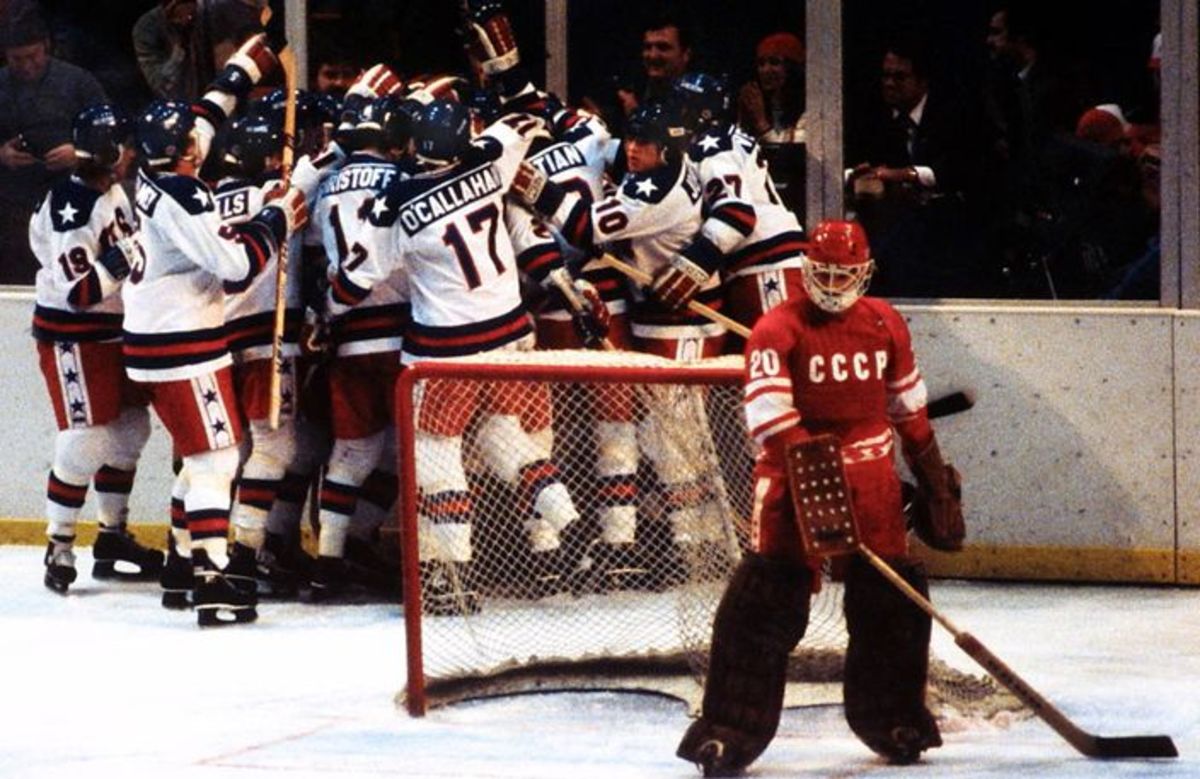By: Zachary Draves
Do You Believe in Miracles?! Yes!
Those iconic words by famed sportscaster Al Michaels perfectly summed up one of the greatest upsets in all of sports.
It was a moment that transcended the actual game.
It spoke something much larger that was at the intersection of sport, society, politics, and class.
Of course, I’m talking about the 1980 U.S. Olympic Hockey team’s stunning defeat over the mighty Soviet Union at the 1980 winter games in Lake Placid, New York 40 years ago.
Their 4-3 win catapulted them to win the gold medal
The impact of that game has been felt tremendously over the years.
The players and Coach Herb Brooks became folk heroes who gave America a boost that is greatly needed at that time.
Before I get into all the socio-cultural and political dynamics that made the game bigger than just a hockey game, I won’t put on my fan hat first.
As a child, I was first exposed to the story of the team by watching my favorite channel ESPN Classic.
I was intrigued by the fact that these 20 college kids, virtual nobodies were able to conquer over the Soviets, who at the time were the best hockey team in the world.
I still have a VHS copy of the actual game and as a kid would watch it routinely. I wanted to get my hands on everything I could about the team.
Documentaries on HBO, books, magazines, etc.
I was fascinated by the story.
So much so, that over the years I could name all 20 players and the score of each game they won during that Olympics as well as naming those players who score the 4 goals against the Soviets.
When I graduated from college, my sister gave a framed card collection that had a card for each player and was signed by the entire team.
I always used to refer to it as my “bedtime story” and I was obsessed with everything about them.
Now, as I am about to put on my grad student, writer, professor, and activist hats, the game was an introduction to me into an aspect of American history that had nothing to do with sports.
Let’s put it into context.
The games were at the height of the Cold War, where the U.S. and the Soviets were at each other’s throats in almost every way and by 1980 things had gone from bad to worse.
The geopolitics were immensely tense.
Culminating in the Soviets invasion of Afghanistan and the subsequent boycott of the U.S. to the Summer Olympics which were held in Moscow.
Furthermore, in November of 1979, 52 Americans who worked out of the Iranian Embassy were taken hostage and would be held for 444 days.
The crisis stemmed from the outing of the Iranian Shah that the U.S. had helped to put into power back in 1953 that oversaw a regressive and oppressive regime.
In the aftermath, Iran ushered in a new regressive and oppressive regime in religious fundamentalism and as a result, the hostage crisis was underway.
It seems as though America was losing its identity as the world’s greatest superpower.
On the home front, growing economic inequality, inflation, high gas prices, and the beginning of the deindustrialization was destroying the country.
We were suffering at home and suffering abroad.
So it was up to these 20 upstarts to save the country at least momentarily.
They embodied the sort of blue-collar working-class ethos that has always been a cornerstone of sports culture.
The idea of working from the bottom up. Starting with very little and making it into something more.
At this time when working people in America were on the margins, wages stagnated, unions were being destroyed and dehumanized, and vulnerable to job losses, I believe they saw themselves in the team.
They went to work, did their job to the best of their ability, and would do whatever it took to get the job done.
They were aware of the systemic and structural forces that sought to undermine their labor and discredit them.
Much is the case with working-class folks who are undermined every day by greedy companies and employers that undermine their labor as well.
There was a solidarity there, even if not spoken, it was there.
The Miracle on Ice still remains a folk tale that resonates with those who saw it and those who were born after it.
Their story is simply that anything is possible and that the bottom-up approach to sports, politics, labor, etc. always comes through in the end.
40 years later, I still believe in miracles.
How about you?


 NFL
NFL





